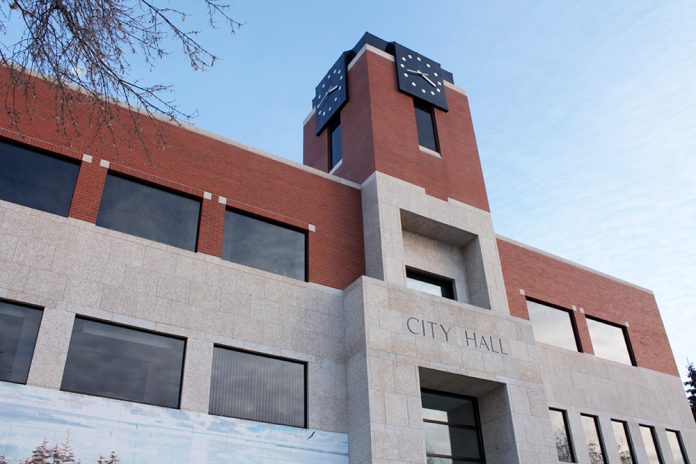Prince Albert city council plans to approve a zero per cent increase for in-city residential water bills, with spending cuts and fee increases for outside users set to make up the difference.
The Saskatchewan Penitentiary and two trailer courts—Driftwood and Eastwood—will now pay 175 per cent of what in-city users pay. Previously, they only paid 160 per cent.
Council also reduced or eliminated a number of spending projects. The biggest involved the Sewer Line Replacement program, which was capped at $135,000. Administration had budgeted for $235,000 worth of work in 2021.
Council also voted to phase out the Septic Rebate Program, which affects 185 properties, on July 1. All but six of those properties are north of the river. The move will save $45,000.
Final approval won’t be given until Thursday’s meeting, which starts at 4 p.m. at City Hall.
Ward 8 Coun. Ted Zurakowski was the first to suggest council consider looking at raising fees for outside users. He said the City needs to find ways to pay for the $18-million water pump house capital project, and worried the burden would disproportionally fall on in-city property owners.
“The outside users, I’m not always convinced they’re helping to pay for the construction of those capital costs,” he said during Wednesday’s meeting. “Yes, they pay a pretty good premium to get the water there … but how do we feel assured they’re paying their fair share when it comes to that $18-million (so) that’s not just on the backs of the people who live within the borders of Prince Albert?”
City administrators had proposed raising consumption rates from $1.32 per cubic meter to $1.35 heading into the first of two budget meetings scheduled this week. When combined with a proposed $0.50/month sewer fee increase, the average Prince Albert utility bill would cost an extra $37.80 per year.
Several councillors said too many in-city residents were struggling to pay their bills, and would not be able to cover extra utility costs. They refused to support increases slated for in-city residents.
“(Even) $5 a month is too much right now,” said Ward 6 Coun. Blake Edwards, who was the most vocal councillor to oppose the increase. “Somehow, some way, I want to be able to reduce some of the increase, and I could nickel and dime this budget all day long.
“I’m just concerned,” he added. “It’s the same business as the last COVID year, (with) lots of people out of work (and) lots of people working second jobs to make ends meet.”
The discussion over the Septic Rebate Program was the longest one of the night. Zurakowski spearheaded the move to end it, saying the rest of the city shouldn’t be subsidizing a rebate for a few properties.
The rebate program was passed in 1980 and extended to all residents and businesses in 1993. Public Works Director Wes Hicks said it should have ended in 1995 when the City created the Utilities Fund, which removed water and sewer charges from property owners’ taxes.
“It sounds to me, based on what we’re hearing, that it’s a past practice that has outlived the changes to how this city pays for utility services,” Zurakowski said during the meeting.
“To me, it’s an issue of tax fairness for the whole city, on both sides of the river,” he added.
Zurakowski said he was open to bringing the program back later if the decision didn’t work out as intended.
Couns. Terra Lennox-Zepp and Tony Head were the only councillors who voted to keep the rebate in place. Lennox-Zepp said property owners north of the river weren’t getting as much bang for the buck as residents in the south. She argued that the rebate helped offset that loss.
“I door-knocked that whole area and talked to residents, and at every doorstep I heard the same thing, which is ‘I’m not getting the services (and) I’m paying very high taxation because I have a lot of land,’” Lennox-Zepp said. “Many people would choose to just buy the same amount of land in the RM, and look at the disparity for what the RM charges for their taxation rate compares to what the City charges. The City charges much higher property taxes, and people are enraged when they talk about these issues of disparity.”
Head, on the other hand, said removing the program would save money for the City, but not necessarily for taxpayers. Removing it this year, he argued, would be counterproductive, since they were trying to help property owners, not find extra funds to cover other needs. Instead, he urged council to cut spending in other areas.
“Our goal is to save money for our residents, and I think supporting this motion would take away money from those families,” Head explained. “I hear that it’s dated. It’s 40 years old, so I get we need to do away with it. But, putting these residents on notice that this is the last year that we’re going to (administer the program) would be my preference.”
Council did consider cutting the rebate by half for the rest of the year, then eliminating it completely in 2022. However, Hicks told council the program was “very, very difficult” to administer, and cutting it by half would add to the complications. He suggested creating a firm end date halfway through 2021, and administering it in full until that time.
Finance Director Cheryl Tkachuk told council the water and sewer rate increases would have raised about $421,000 in revenue for the City. She said operating costs were going up in 2021, and they wanted to make sure they had enough money to cover utility fund debts. Those debts include unpaid bills caused by the COVID-19 outbreak.
Mayor Greg Dionne said council expects to have a $500,000 surplus in the utility fund, which should be enough to pay off that debt.


